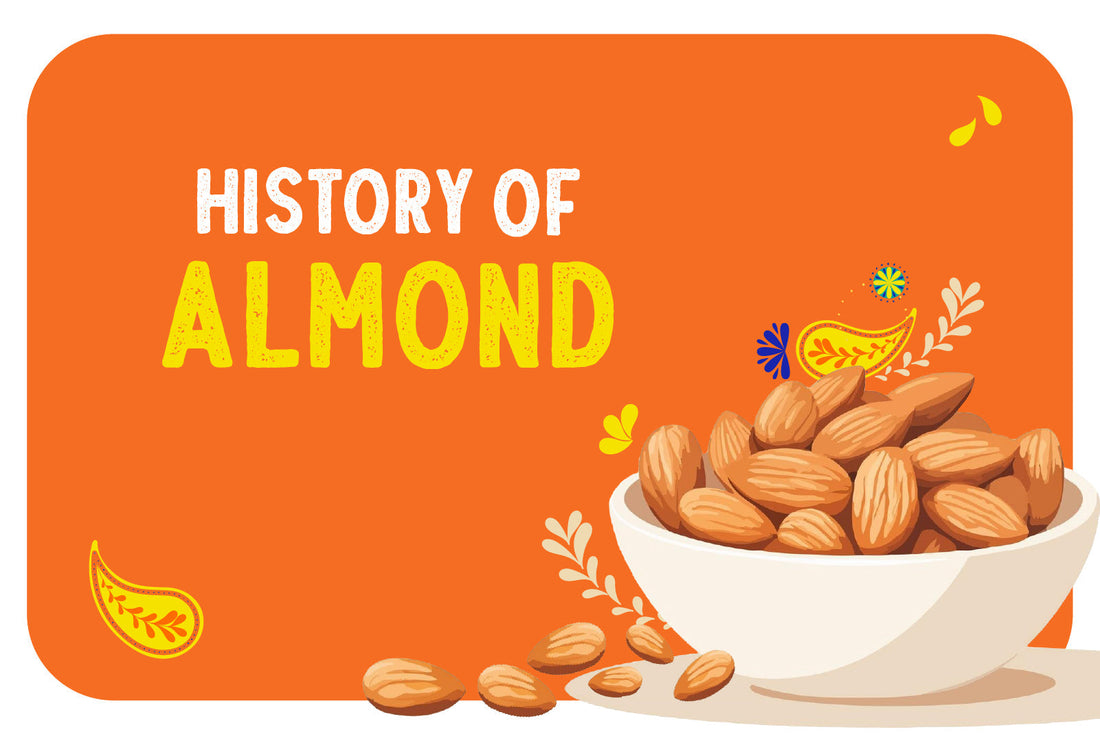Almonds, one of the world's oldest cultivated nuts, have a rich history of over 4,000 years. Originating in the Middle East, particularly in regions around Iran and Turkey, almonds quickly gained prominence due to their versatility, nutritional value, and long shelf life. Ancient civilizations like the Egyptians and Romans cherished almonds as luxurious treats and symbols of good luck. The almond tree is even mentioned in ancient religious texts, emphasizing its significance across cultures and eras.
The Journey of Almonds to the World
The almond's journey from the Middle East to the rest of the world is a fascinating tale of trade, exploration, and adaptation. Traders along the Silk Road were crucial in spreading almonds to regions like Greece and Italy, where they became staples in Mediterranean cuisine.
As maritime exploration expanded, almonds reached new shores, including India, where Persian traders introduced them. With its rich agricultural heritage, India embraced almonds not just as a fineness but also for their health benefits.
By the 18th century, Spanish missionaries had brought almonds to California, USA, where the climate had proved ideal for cultivation. Today, California is the largest producer of almonds globally, contributing to nearly 80% of the world's supply.
Almond Use Around the World
Almonds have seamlessly integrated into various culinary and cultural traditions worldwide:
-
India: Used like Roasted Almonds; in sweets such as Badam Halwa, Badam Barfi and as garnishes in rich Mughlai curries and biryanis.
-
Mediterranean: A key ingredient in marzipan, almond biscotti, and savoury dishes like almond-crusted fish.
-
Middle East: Ground almonds are essential in desserts like Baklava and are often enjoyed as roasted snacks.
-
USA: Almond milk, almond butter, and energy bars have become popular health foods, especially among fitness enthusiasts.
-
China: Almonds are often used in traditional desserts and herbal medicines for their health benefits.
The versatility of almonds has made them a global favourite, from festive treats to daily snacks.
FAQs
1) How many almonds to eat per day?
- Eating around 20-25 almonds a day is generally recommended for optimal health benefits, including better heart health and weight management.
2) Which city in India is famous for almonds?
- Kashmir, especially the regions around Sopore, is renowned for producing high-quality almonds.
3) What is the story of almonds?
- Almonds have a storied history, from being a symbol of fertility in ancient Greece to being treasured as energy-boosting snacks along ancient trade routes.
4) Are raw almonds safe to eat?
- Yes, raw almonds are safe to eat and are packed with nutrients. However, soaking them can enhance nutrient absorption.
5) Who introduced almonds in India?
- Persian traders are credited with introducing almonds to India through ancient trade routes.
6) What is the history of the almond tree?
- The almond tree originated in the Middle East and has been cultivated for over 4,000 years for its nutritious seeds.
7) When was almond first eaten?
- Almonds were first eaten as early as 2000 BC, with archaeological evidence from ancient Persian and Egyptian sites.
8) Which country is famous for almonds?
- The USA, particularly California, is the most famous and largest producer of almonds globally.























































